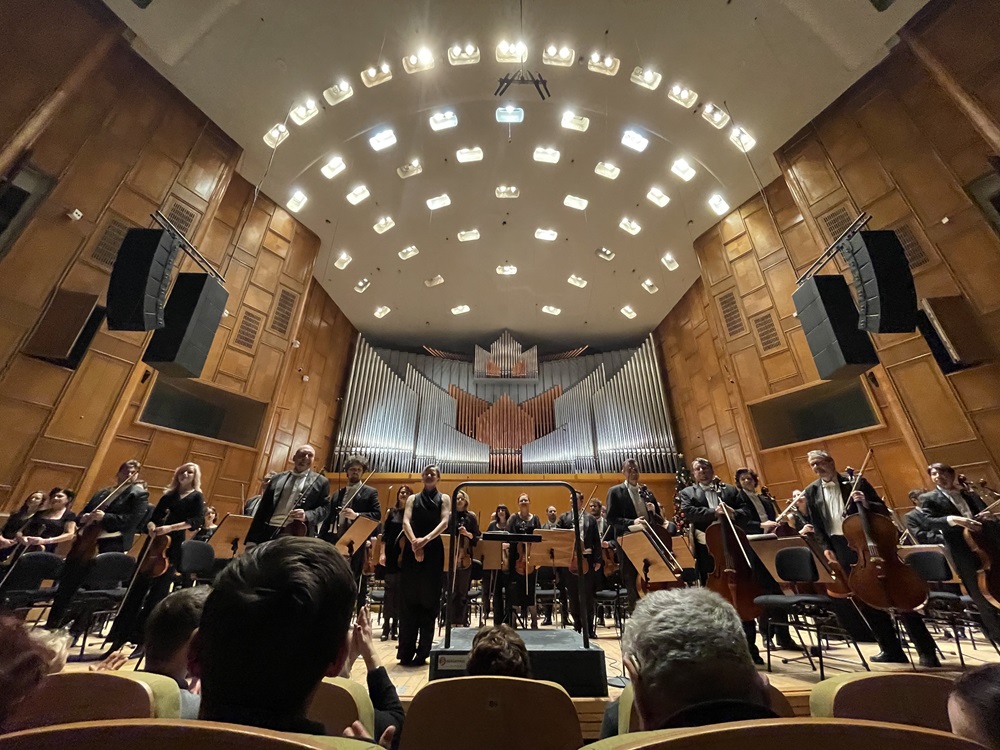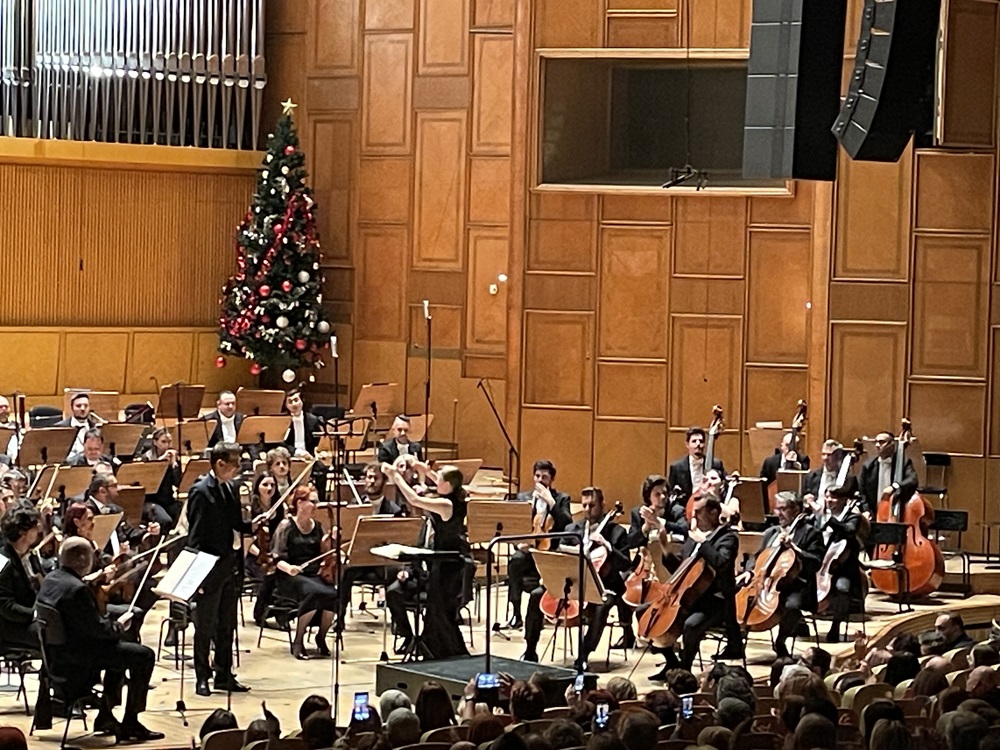Mie-mi place Elgar,
dar atât de mult, încât risc să scriu doar despre a doua parte a concertului de ieri seară (13 decembrie 2024) de la Sala Radio, deși nu ar fi corect. Cum ar putea să fie, când concertul a început cu Beethoven și cu Alexandru Tomescu la vioară? Concertul op. 61 în Re major pentru vioară și orchestră de Ludwig van Beethoven a avansat impecabil sub bagheta Katharina Wincor, dirijoarea serii. Din colțul celor cu abonamente nu s-au văzut milimetric detaliile, însă s-a auzit metronomic.
Concertul pentru vioară și orchestră în Re major, op. 61, este unul dintre cele mai celebre și apreciate concerte din repertoriul pentru vioară. Introducerea concertului este atipică - începe cu cinci lovituri de timpan, o idee inovatoare pentru vremea respectivă. Cu un bis ascultat de dirijor din rândul instrumentiștilor.
M-am mutat în rândul trei după pauză. Elgar își descria simfonia ca fiind "o expresie a sufletului său". O simfonie, cu armoniile sale bogate și structura amplă, a consolidat reputația lui Elgar ca unul dintre cei mai mari compozitori britanici, influențând generațiile următoare. Simfonia a fost un succes răsunător, cu peste 100 de interpretări în primii doi ani de la debut - o raritate pentru o lucrare simfonică modernă.
O simfonie atât de diversă, bogată, plină, compusă de cineva care nu a avut o educație formală extensivă în muzică. Atât de bine se aud atât de multe instrumente. Harpa, suflătorii, percuțiile. Elgar a învățat singur să compună și să dirijeze, ceea ce face realizările sale cu atât mai impresionante.
Numai că, față de programul original însă, care îl avea le Elgar în repertoriu, partea a doua a adus publicului Rachmaninov. Așa că... Aproape o oră. Mult, puțin? Dacă aveți posibilitatea, vă rog, play:
Vineri, 13 decembrie 2024, ora 19.00, Sala Radio
Orchestra Națională Radio
Dirijor: Katharina Wincor
Solist: Alexandru Tomescu (vioară)
Program: L. van Beethoven: Concertul în re major pentru vioară și orchestră, op. 61 / S. Rachmaninoff: Dansuri simfonice
I love Elgar,
so much so that I risk writing only about the second part of last night's concert (13 December 2024) at Sala Radio, even though that wouldn't be fair. How could it be, when the concert began with Beethoven and Alexandru Tomescu on the violin? Beethoven's Violin Concerto in D major, Op. 61, progressed flawlessly under the baton of Katharina Wincor, the evening's conductor. From the subscription holders' corner, the details weren't visible down to the millimetre, but everything sounded metronomic.
The Violin Concerto in D major, Op. 61, is one of the most famous and cherished concertos in the violin repertoire. The concerto's introduction is unconventional-it begins with five timpani beats, an innovative idea for its time. There was even an encore, listened to by the conductor from among the instrumentalists.
I moved to the third row after the break. Elgar described his symphony as "an expression of his soul." A symphony, with its rich harmonies and expansive structure, cemented Elgar's reputation as one of the greatest British composers, influencing future generations. The symphony was a resounding success, with over 100 performances in the first two years after its debut-a rarity for a modern symphonic work.
A symphony so diverse, rich, full, composed by someone who had no extensive formal music education. So many instruments are heard so well. The harp, the winds, the percussion. Elgar taught himself to compose and conduct, which makes his achievements all the more impressive.
Only that, compared to the original program, which had Elgar in the repertoire, the second part of the concert brought Rachmaninov to the public. So... Almost an hour. Too much? Or on the contrary? Please, if you have one chance, just play:
0 comentarii
Resurse
Alte articole de Nora DobreAlte cronici muzicaleArticole similare
Nu extraordinarul / Not the fancy / Nora DobreRiscant / Risky / Nora DobrePozele de la opera / Taking pictures at the opera / Nora DobreDin lumea nouă / From the New World / Nora DobreAm întârziat / I Was Late / Nora DobreToate articolele despre ConfluenceScrieţi la LiterNet
Scrieţi o cronică (cu diacritice) a unui eveniment cultural la care aţi participat şi trimiteţi-o la [email protected] Dacă ne place, o publicăm.
Vreţi să anunţaţi un eveniment cultural pe LiterNet? Îl puteţi introduce aici.
Publicitate

